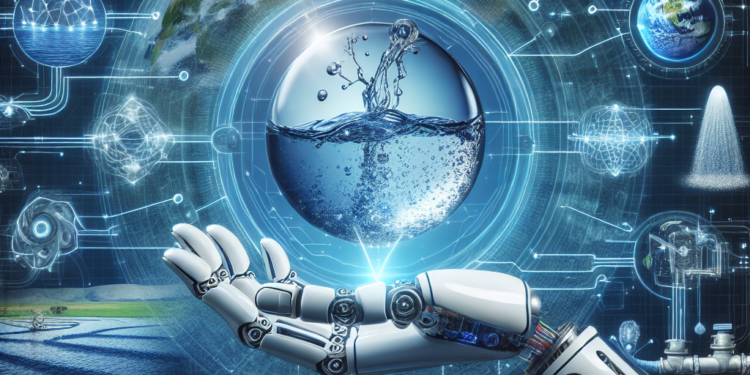In recent years, artificial intelligence (AI) has made significant strides in various industries, including water management. The use of AI-driven solutions in water management has the potential to revolutionize the way we monitor, manage, and conserve water resources.
Water is essential for life, and the availability of clean and safe water is a critical issue facing many regions around the world. With climate change, population growth, and increasing water demand, there is a pressing need for innovative approaches to water management.
AI-driven solutions offer a new way to approach water management. By leveraging the power of machine learning, predictive analytics, and data-driven insights, these solutions can help optimize water usage, improve water quality, and reduce water wastage.
One of the key benefits of AI-driven solutions in water management is their ability to analyze large amounts of data in real-time. Traditional water management systems rely on manual data collection and analysis, which can be time-consuming and prone to human error. AI can automate the data collection process and provide real-time insights into water usage patterns, trends, and anomalies.
For example, AI can be used to monitor water quality in real-time by analyzing data from water sensors. By detecting changes in water quality, AI-driven systems can alert water management authorities to potential contamination events, enabling them to take corrective action quickly.
AI can also be used to optimize water distribution systems. By analyzing data on water demand, usage patterns, and infrastructure condition, AI-driven solutions can help water utilities identify opportunities to improve the efficiency of their distribution networks. For example, AI can optimize pumping schedules to reduce energy consumption, minimize pipe leaks, and prevent water loss.
Furthermore, AI can help water utilities predict and mitigate the impact of extreme weather events on water resources. By analyzing historical weather data, AI-driven solutions can forecast droughts, floods, and other extreme events that may impact water availability. This information can enable water utilities to implement proactive measures, such as water conservation campaigns, to mitigate the impact of these events on water resources.
Another area where AI-driven solutions are making a significant impact is in water conservation. By analyzing data on water usage patterns, AI can provide insights into opportunities to reduce water wastage and improve conservation efforts. For example, AI can identify leaks in water distribution networks, detect anomalies in water usage, and provide recommendations for reducing water consumption.
AI-driven solutions can also help water utilities improve customer service. By analyzing customer data, AI can provide personalized recommendations on water conservation, billing, and usage optimization. This can help water utilities build stronger relationships with customers and increase customer satisfaction.
In addition to these benefits, AI-driven solutions in water management also have the potential to save costs. By optimizing water usage, reducing leaks, and improving efficiency, AI-driven systems can help water utilities reduce operational costs and improve overall financial performance.
Despite the many benefits of AI-driven solutions in water management, there are some challenges that need to be overcome. One of the key challenges is data quality and availability. In order for AI to provide accurate insights, it requires access to high-quality data. Water utilities need to invest in data collection, storage, and management systems to ensure that AI-driven solutions have access to the data they need.
Another challenge is the adoption of AI technologies. Many water utilities may be hesitant to adopt AI-driven solutions due to concerns about cost, expertise, and implementation complexity. To address these challenges, governments, industry stakeholders, and technology providers need to work together to promote the adoption of AI-driven solutions in water management.
In conclusion, AI-driven solutions have the potential to transform water management by providing real-time insights, optimizing water usage, improving water quality, and reducing costs. By leveraging the power of AI, water utilities can improve their operational efficiency, enhance customer service, and build more sustainable water systems. As the world faces increasing water challenges, AI-driven solutions offer a promising way forward for more efficient and effective water management.













